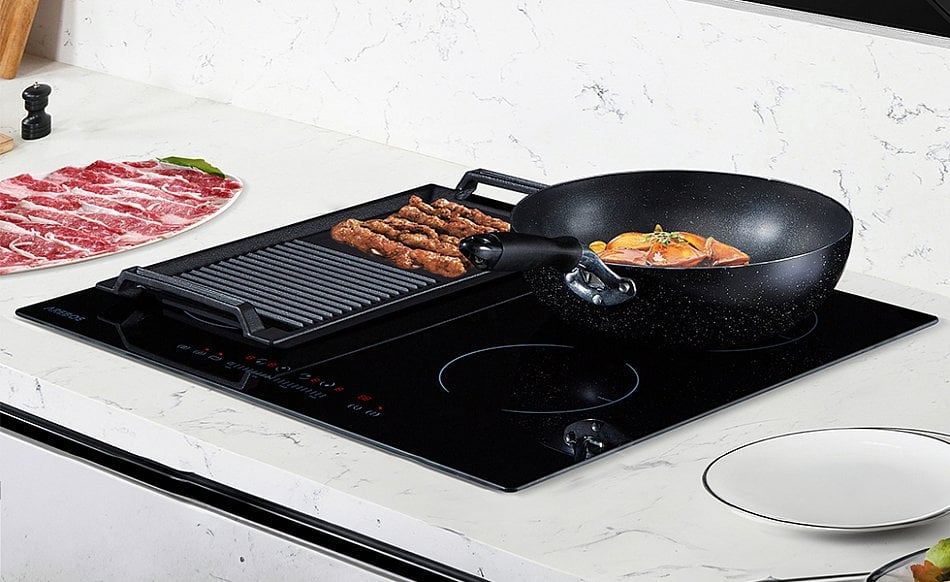Is Vintage Cast Iron Safe for Induction Cooking?
Written By James Morgan
For barbecue enthusiasts who cherish their vintage cast iron cookware, a common question often arises: Is vintage cast iron safe for induction? As many of us transition into modern kitchens with sleek induction cooktops, its crucial to understand how our beloved cast iron fits into this new cooking paradigm.

The Charm of Vintage Cast Iron
Vintage cast iron holds a special place in the hearts of many. These pieces, often passed down through generations, are not just cooking tools but treasured heirlooms. The beauty of vintage cast iron lies in its durability and ability to retain heat, making it perfect for cooking everything from steaks to stews. But as we move towards more energy-efficient cooking methods, the compatibility of these vintage pieces with induction cooktops becomes a topic of interest.
Understanding Induction Cooking
Before diving into whether vintage cast iron is suitable for induction, it's essential to understand how induction cooking works. Induction cooktops use electromagnetic fields to directly heat pots and pans, making them incredibly efficient. However, this method requires cookware with a magnetic base to work effectively.
For a deep dive into the mechanics of induction cooking, you can refer to this How Induction Cooktops Work article.
Magnetic Properties of Vintage Cast Iron
Most vintage cast iron cookware is naturally magnetic, which makes it inherently suitable for induction cooking. The iron in these pans and pots reacts to the electromagnetic field, allowing them to heat up efficiently. However, the thickness of the cast iron can sometimes affect the speed at which it heats.
For those interested in testing their cookware, heres a simple method: place a magnet on the bottom of your cast iron pan. If it sticks firmly, your cookware is induction-compatible. For more tips on testing cast iron compatibility, check out this Cast Iron Compatibility Guide.
Benefits of Using Vintage Cast Iron on Induction
Using vintage cast iron on an induction cooktop has numerous benefits. First, the rapid heating and precise temperature control of induction cooktops complement the heat retention qualities of cast iron. This combination allows for evenly cooked meals, making it perfect for searing meats, a favorite technique among barbecue enthusiasts.
Moreover, because induction cooktops do not generate direct heat, the risk of warping your vintage cast iron is significantly reduced. If you're curious about the effects of induction on cast iron, refer to this Warping Concerns article.
Potential Drawbacks and Considerations
While vintage cast iron is generally safe for induction, there are some considerations to keep in mind. The heavy nature of cast iron can sometimes lead to scratching on glass induction surfaces. To mitigate this, always lift, rather than slide, your cookware. Additionally, ensure that the base of your cast iron is flat to allow full contact with the cooktop.
It's also important to remember that seasoning your cast iron properly is crucial, especially after using it on induction. For a comprehensive guide on maintaining your cast iron, visit this Re-seasoning Tips.

Conclusion
In summary, vintage cast iron is indeed safe for use on induction cooktops, provided it has a magnetic base. The combination of vintage cast iron and modern induction cooking allows barbecue enthusiasts to enjoy the best of both worlds: timeless cooking techniques with modern efficiency. Embrace your vintage pieces and explore new culinary horizons, ensuring you take the necessary steps to protect both your cookware and your cooktop.
FAQs
1. Can all cast iron cookware be used on induction cooktops?
Most cast iron cookware is compatible with induction cooktops as long as it has a flat, magnetic base.
2. Does using cast iron on induction require special cleaning?
While general cleaning remains the same, its important to check for any scratches or residues that might affect the cooktop surface.
3. Will using cast iron on induction affect its seasoning?
Induction cooking generally doesnt affect the seasoning, but regular maintenance and re-seasoning are recommended for optimal performance.



